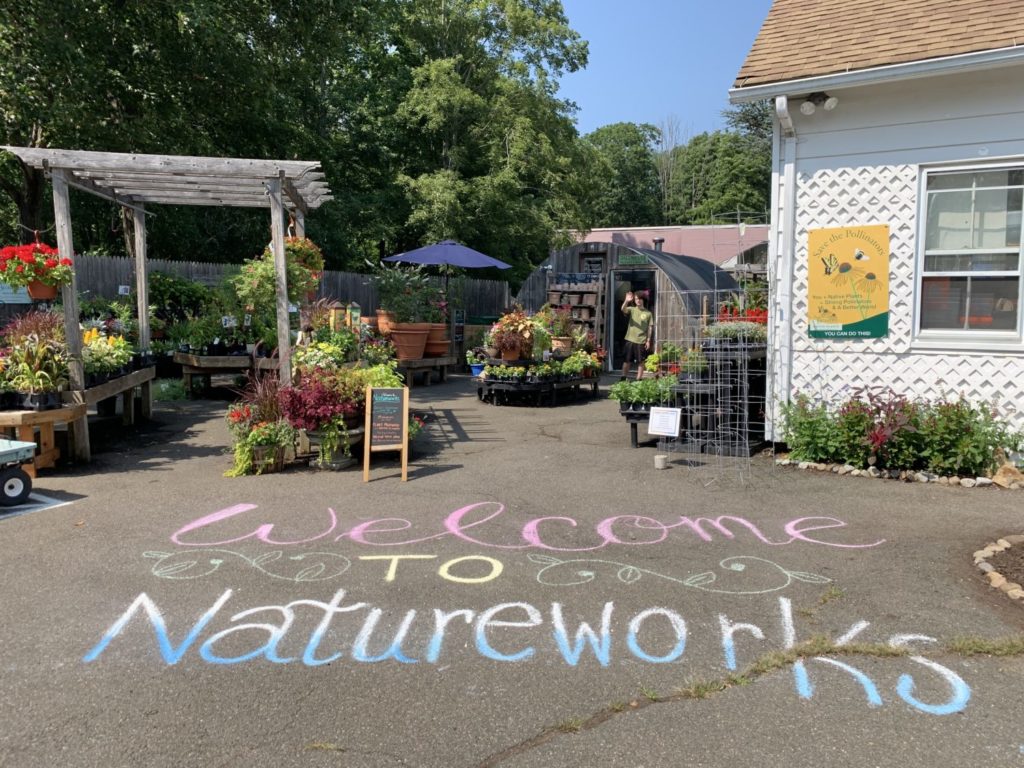
Focused on Organic Gardening
Nancy DuBrule-Clemente isn’t afraid of a challenge. She founded the landscape company and destination garden center Natureworks in southern Connecticut in 1983 as a woman-led, organically focused company at a time when gardening was chemical dependent.
The response? Less than responsive.
“[People] were like, ‘Oh, that’s nice, dear,’” DuBrule-Clemente says about when she began her business. “Truly, they didn’t care. Nobody ever, ever hired me because I was organic, ever, back in the early 1980s. The concept of organic back then was everything had holes in it and had bugs on it. And all the annual growers and greenhouse growers thought I was crazy.”
DuBrule-Clemente says that, because it was a small company, she could make the choice to be organic. Graduating from the University of Connecticut in the 1970s, she was taught only conventional methods of using chemicals.
“There was no organic focus or bent at all. It was the height of the time when there weren’t any organics,” she says. She began researching organic gardening, subscribing to “Organic Gardening” magazine from Rodale Press and joining an organic gardening book club. “What I was learning from that was very different from what I was learning in school,” she says.
At her first job at a nursery in Hamden, Connecticut, she managed a small greenhouse and had to get a pesticide license and spray “all these really strong things that are now illegal — and it scared me,” she says.
“We would spray … everybody did it. And then, an hour later, we’d open the greenhouse and put up a sign: ‘Come on in.’ It was horrible. I worked there from 1976 until 1983, when I quit and I started my own little business, determined to do it organically. Back in ‘83, that was very rare. I now know that Lloyd Traven from Peace Tree Farm [in Bucks County, Pennsylvania] started the same year as me.”
“I’m Doing It Anyway”
DuBrule-Clemente says she was determined to make a go of being an organically focused business. “There was nothing out there. Nothing. There were no marketing plans, no signs. I was buying from some organic farm supply companies, and the bags were totally not user-friendly. It was a 50-pound paper bag in a shed and you’d be like, ‘Oh, you want some organic fertilizer? Let me bag it for you.’ It was just not easy. So I basically said, ‘I’m doing it anyway’ and just bumbled along until I started meeting other people in the organic movement through the Northeast Organic Farming Association (NOFA). That’s when we all started getting together as landscapers, and we started learning from each other.
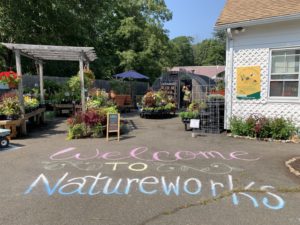 “So it took a while, maybe into the ‘90s, before we were organized together. And now in Connecticut and Massachusetts and other states, we have the Organic Land Care Accreditation Course through NOFA. I’ve been a teacher for that. [Attendees] take a four-day course and an exam, and they get certified as a NOFA Accredited Organic Land Care Professional (AOLCP), and they can use that as a way to say, ‘I truly am organic.’”
“So it took a while, maybe into the ‘90s, before we were organized together. And now in Connecticut and Massachusetts and other states, we have the Organic Land Care Accreditation Course through NOFA. I’ve been a teacher for that. [Attendees] take a four-day course and an exam, and they get certified as a NOFA Accredited Organic Land Care Professional (AOLCP), and they can use that as a way to say, ‘I truly am organic.’”
Finding What Worked
DuBrule-Clemente says she attended the now-closed Boston trade show New England Grows every year. “I would walk the show and, ever so gradually, there would be more and more organic products.” She says she’d try new products from organic vendors and not only stock them in her retail store, but test them out. If a landscape crew came back and said they love a product, they’d carry more of it in the store.
“Diane St. John, who runs the retail store, is a gardener and she communicates with everybody on the crews. And we know what sells and what doesn’t, and we know what works and what doesn’t at this point. So we call it crew-tested.”
“I continuously look for and test new organic products and we sell what we test and what works,” St. John says. “We stand behind the products we sell-because we all use them, too. I like to meet and talk to the company behind every potential product, ask a lot of questions and see if they are truly behind their organic product.”
Build It and They Will Come
DuBrule-Clemente says that people come to the garden center now because they’re organic. “They search us on the internet,” she says, and “they find us because of it. They travel from far away.”
She says to convince people to garden organically she had to “create really beautiful gardens organically. It didn’t matter that they were organic to people — what mattered was they were beautiful and they were gorgeous and unusual. I had to become a serious horticulturist and be able to talk to people about this so they respected me, and then they accepted the organics. It was a flip of what you would find nowadays. It had to be beautiful before they would accept it because they didn’t trust it.
“The younger generation is all in,” DuBrule-Clemente says. “They don’t need any convincing. They’re just so relieved when they come to Natureworks and they realize that we’re the real deal — that we garden organically. We have crews that garden this way. We teach this way. We’re adamant about it. They come in and say, ‘What’s up with my plant?’ and we give them an explanation about the bug, its lifestyle, and how to make the plant healthier. And the whole place is just buzzing with all these kinds of crazy conversations that you probably don’t hear a lot in box stores or anywhere they’re just selling chemicals.”
Managing Retail Operations
St. John has been with Natureworks since 2009. “I started here on the advice of a teacher, who said, ‘If you want to learn your plants, get a job at a garden center.’ And she was absolutely right,” St. John says. “I had graduated from college with a different degree long ago but I found myself unloading trucks and moving plants and just completely fell in love with it.”
Previously a professional photographer, St. John says she has found it pertains to garden center life as well. “I can still do [photography] here,” she says. “I love taking pictures for our Instagram and Facebook, and it gives me a chance to do that.
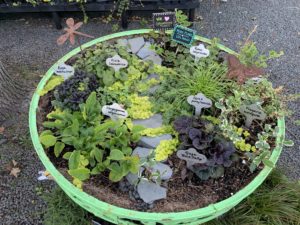 As manager of the retail store, she says, “It’s really rewarding helping people with their projects in a natural, safe way, where everything grows beautifully and it’s safe. We teach people that insects are good to have around. It’s amazing to see how people don’t want to hurt these things anymore. We all grew up learning to spray our lawns, spray our yards, and keep it a certain way — and now we’re just going completely the opposite way. In that regard, we’re very lucky that we started out organically because now customers are finding us because we’ve been doing this for so long and we consider ourselves the experts.”
As manager of the retail store, she says, “It’s really rewarding helping people with their projects in a natural, safe way, where everything grows beautifully and it’s safe. We teach people that insects are good to have around. It’s amazing to see how people don’t want to hurt these things anymore. We all grew up learning to spray our lawns, spray our yards, and keep it a certain way — and now we’re just going completely the opposite way. In that regard, we’re very lucky that we started out organically because now customers are finding us because we’ve been doing this for so long and we consider ourselves the experts.”
A Shift to Organic Gardening
St. John says she’s seen a shift in the type of hardgoods they sell. “We went from selling a good amount of OMRI certified product to kill insects, to instead selling products that are about building your soil. We sell a lot more compost and organic fertilizers and microbes and mulches and even plants themselves.
“Our plant sales have gone up as well. We try to teach that the more plants you have and the more flowers you have, the more beneficial insects you attract that take care of the destructive insects for you. It is important to have a wide mix of plants that bloom at all different times during the season. Gardening is now about creating habitat for beneficial insects by planting perennials, annuals and shrubs, but also groundcovers.
She also promotes companion planting, noting that it isn’t limited to ornamentals — and edibles aren’t limited to a vegetable garden. “People didn’t realize you could plant annuals with your vegetable gardens, so now when we talk about vegetable gardening, we always put in a bunch of our favorite annuals for pollinators that attract beneficial insects, birds and hummingbirds because hummingbirds will come eat some of the insects on the plants that are bothering your vegetables, like aphids. This also makes your vegetable garden pretty all season!”
Native plants have always been popular with Natureworks shoppers but have expanded in a way that St. John and DuBrule-Clemente didn’t expect.
“Now [customers] don’t even just want natives; they want straight species,” DuBrule-Clemente says. “They’re coming in droves. I’ve never sold so many native plants in my life. We sell milkweed — tons of common milkweed. To me, it was a weed; it’s great, but I could never sell it. Nobody would pay money for it. Now, of course, they do.”
“So now I’m on a whole new rant trying to get people to understand that there’s value in some plant breeding that’s being done, and, for horticultural purposes, there’s value in the work that’s being done to bring to us varieties that are garden worthy. It’s a fascinating spiral of events.”
Educating Consumers
Teaching the benefits of cultivars is just one way DuBrule-Clemente and St. John educate their customers.
“[In 2023], we’re excited to focus a lot of workshops right in the upcoming renovated organic gardens that surround Natureworks,” St. John says. Natureworks is currently doing a major overhaul of the gardens, which began late this past fall, and the replanting will begin in early spring. “We’re not going to have everything all planted by spring [in the gardens around the property] so we can do that in a series of workshops next year. People like when you show them stuff — not just talk about it. You’re in front of them with the shovel and pruners and actively doing something and showing them how to do it. We do that — we do a lot of videos like that and lots of workshops.”
“COVID kind of ended our workshops … so we’re coming back as a team and trying to figure out workshops again, and the gardens around the property are going to be perfect to help us do that. We demonstrate proper planting. A lot of organic gardening is cultural ways of doing things, like planting things the right way, building up the soil, mulching it, watering properly.
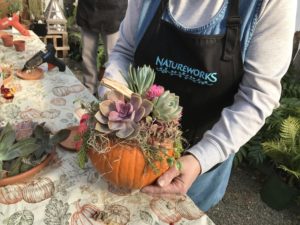 “We also have a weekly email — we call it ‘our famous weekly email,’” for educating customers, St. John says. “During the gardening season, it is filled with timely tips that are happening right then in the garden. Nancy and I write it together. I feed her some ideas and things employees have gotten a lot of questions about from customers, and then she writes it on Tuesday, and it goes out on Wednesday.
“We also have a weekly email — we call it ‘our famous weekly email,’” for educating customers, St. John says. “During the gardening season, it is filled with timely tips that are happening right then in the garden. Nancy and I write it together. I feed her some ideas and things employees have gotten a lot of questions about from customers, and then she writes it on Tuesday, and it goes out on Wednesday.
Natureworks also has hundreds of handouts in the store and posted on its website.
“I’ve written a ton of handouts,” DuBrule-Clemente says. “One of my little writing projects for Natureworks is revising all the handouts and updating them with more of an ecological bent, not just organic.”
She says they are especially handy during busy periods in the store. “When you’re busy, your staff doesn’t have time to get into [all the details].” Instead, staff members can hand them what she calls the CliffsNotes for their topic.
“Diane writes the organic lawn care handouts. We don’t do lawns in our landscaping business at all. We have no interest in being a lawn care company. But we sell organic lawn programs and all the stuff that comes with it because we don’t want people using chemicals on their lawns. We have a very in-depth handout that goes through the seasons; it goes through the products, it goes through the steps [for organic lawn care].”
Looking to the Future
In 2021, DuBrule-Clemente sold Natureworks to a group of employees but didn’t completely step away.
“I’m working 20 hours, maybe 24 hours a week for them. I just didn’t want all the hassle. I’m almost 70,” she says. “We have 32 people on the payroll this year, and all the headaches that come with all of that, I just was like, ‘I can’t do this anymore.’ I want to enjoy my life and not have that responsibility. So I am still working and I’m doing the parts that I like. I’m designing. I’m doing some retailing. I’m teaching some.
I stopped teaching a lot during COVID except for Zoom, but I love to teach. I love to write. I write the weekly email, which is a way to keep my finger in the pot and my voice still is the voice of Natureworks, which people like. They don’t want to see me disappear.”
For an enhanced reading experience, view this article in our digital edition.

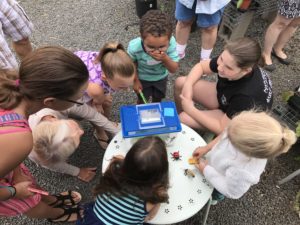
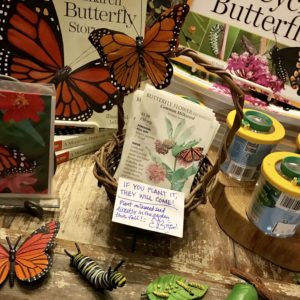



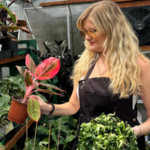
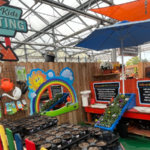

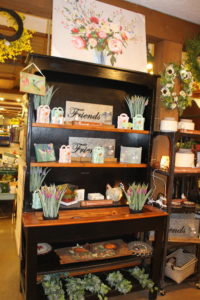
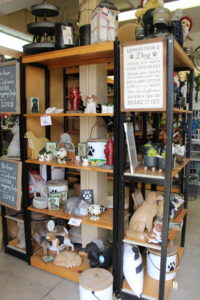
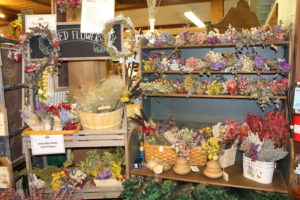
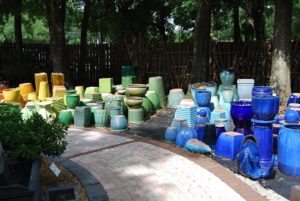
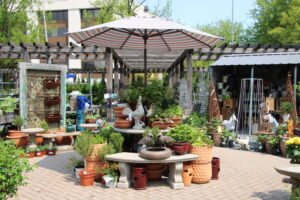
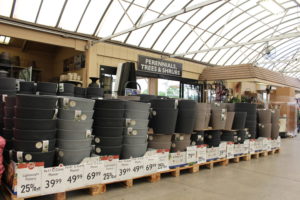
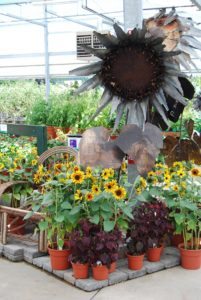
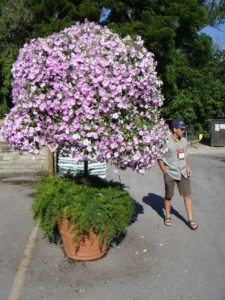
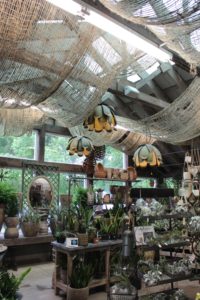
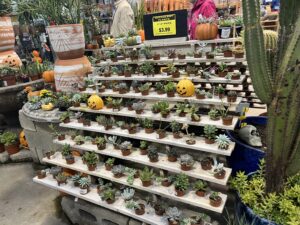
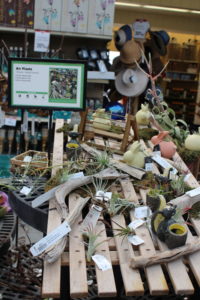
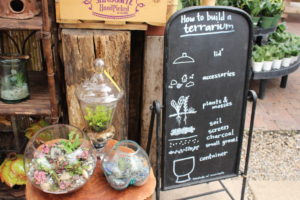
 Videos
Videos





